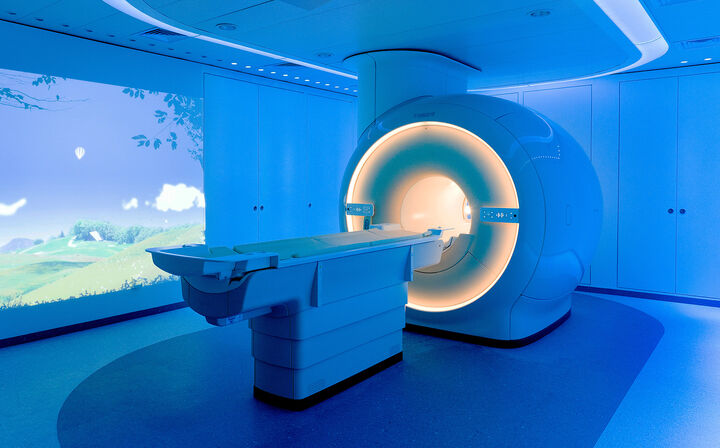Twinn Health, a British health technology startup backed by Saudi Aramco’s $500 million venture fund, has developed an AI platform that can analyze MRI scans to detect diseases earlier. By using imaging biomarkers, Twinn Health’s technology aims to improve diagnosis and treatment decisions for multiple diseases.
The company states they are advancing preventive healthcare and longevity through their AI analysis of MRI scans. This approach promises earlier disease detection compared to traditional diagnostic methods.
MRI technology has long been instrumental in healthcare, though applying AI to detect diverse conditions in MRI scans is still an emerging field. As Twinn Health founder/CEO Wareed Alenaini explained in an interview, MRIs today usually focus on a single diagnosis like kidney stones. The doctor examines the targeted issue, writes a report, and the scan data is archived.
Twinn Health aims to extract additional insights from MRI scans beyond the primary focus. While some AI can already detect specific diseases, Twinn’s technology promises broader application in augmenting disease detection and longevity from MRI data. They seek to uncover further diagnostic information that physicians may have missed.
Twinn Health combines AI and MRI technology to detect and manage age-related diseases early, pioneering a new era of preventive healthcare. As founder Dr. Wareed Alenaini stated, they aim to make chronic disease prevention scalable through this tech.
Alenaini, a Saudi native with a doctorate in bioimaging, conceived of Twinn Health’s approach while researching human MRI image patterns and disease progression. Their ambitious roadmap tackles diseases of aging like frailty and liver disease by analyzing MRI scans for subtle early signs that doctors could miss. The goal is early intervention before chronic illness sets in.
Twinn Health is initially targeting metabolic diseases like diabetes, high blood pressure, and obesity, as these increase susceptibility to severe illnesses like heart disease and stroke. Their AI platform analyzes MRI scans for hidden fatty deposits around organs, an early indicator of heart disease even in healthy people.
In trials, Twinn achieved 95% accuracy in detecting these deposits in 2021. Real-world testing with NHS physicians in 2022 confirmed these results. Founder Dr. Alenaini states their patented AI model can predict metabolic dysfunction up to 5 years early. By scanning for disease indicators years before diagnosis, Twinn aims to enable preventative care and improved outcomes. Early detection of factors like fat deposits could allow intervention before chronic metabolic illness develops.
Twinn Health founder Dr. Alenaini stated they aim to hold 4 more patents, address 3 additional conditions, and amass 1 million data points, showing their scalability and accessibility.
As global interest in longevity rises, Twinn sees potential as an accurate diagnostic platform for emerging healthy longevity clinics. They are currently focused on FDA approval for the US market but plan to expand in the Middle East next given significant regional interest in longevity.
Future targets include age-related frailty and liver disease, influenced by Saudi investor Saleh Al Harthi’s medical expertise. As Twinn pursues further disease detection capabilities, they now seek new funding beyond initial efforts focused on metabolic disease. Expanding into more disease pathways will strengthen their commitment to enabling longevity through early diagnosis.
#ArtificialIntelligence #AI #MedicalAI




